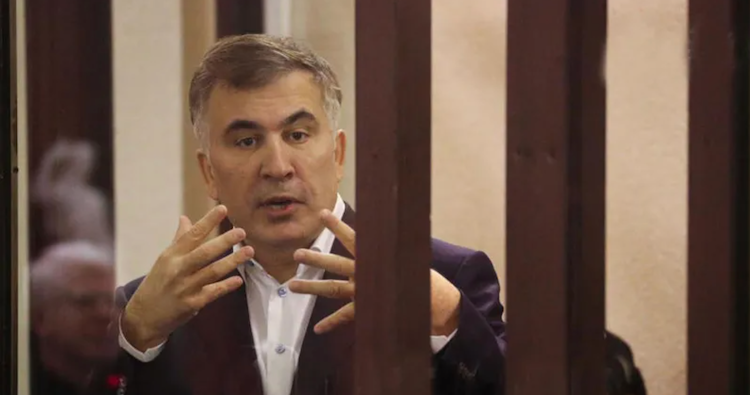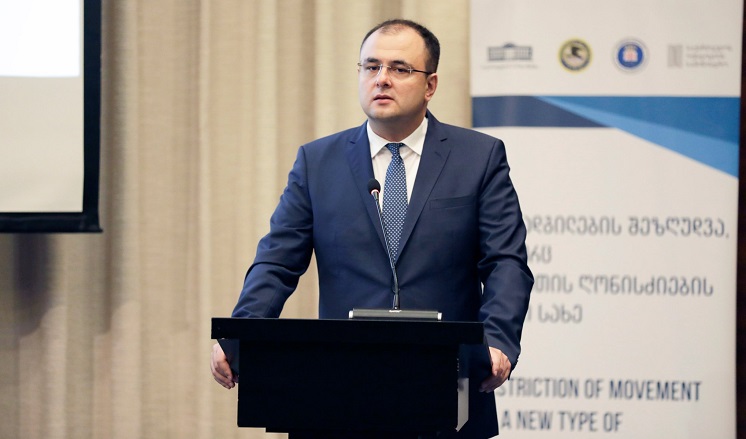Imprisoned ex-pres. Saakashvili dismisses lawyer’s claims over poisoning

Mikheil Saakashvili was arrested in Tbilisi in October 2021, after eight years in political exile. Photo: IPN
Mikheil Saakashvili, the imprisoned former president of Georgia, on Monday dismissed claims by his lawyer Valeri Gelbakhiani over his alleged poisoning while in custody, stating he had “never” told any of his lawyers he had suspected poisoning had triggered his current “complicated health”.
Expressing gratitude to health professionals for support, Saakashvili said in his social media post his health had been getting “worse over the past two months” and noted doctors in the Vivamedi civilian clinic in Tbilisi, where he was transferred for treatment in May, had been doing “their best” to ensure proper care.
It is important to trust professionals and there is no need to over-politicise this topic”, Saakashvili said.
Speaking to Interpressnews on Saturday, Gelbakhiani claimed poisoning had been suspected by Saakashvili and pointed out by invited foreign professionals in their recent report.
In response to the allegations, the special penitentiary service on Sunday said it had not been provided with any official report confirming the lawyer’s claims, and added the former president had been provided with “all necessary” medical services.
 Justice minister Rati Bregadze said on Sunday his body would address Levan Samkharauli National Forensics Bureau over the claims of Saakashvili's lawyer. Photo: justice ministry press office .
Justice minister Rati Bregadze said on Sunday his body would address Levan Samkharauli National Forensics Bureau over the claims of Saakashvili's lawyer. Photo: justice ministry press office .
The agency also called on the public to refrain from spreading “unverified and unsubstantiated” information in order to “prevent misinformation”.
Justice minister Rati Bregadze on Sunday said his body would address the domestic Forensics Bureau on Monday for a toxicological examination on Saakashvili and provide the public with “complete and comprehensive information”.
Saakashvili was arrested in Tbilisi in October 2021 after his clandestine return to Georgia. Currently he is serving his six-year term for two separate abuse of power cases while in office, with three other cases involving his term pending.
His lawyers and family members have claimed the former president is in “urgent need” of treatment abroad, adding local professionals had been “unable” to make “accurate diagnosis and ensure relevant treatment” for months.
 Tweet
Tweet  Share
Share